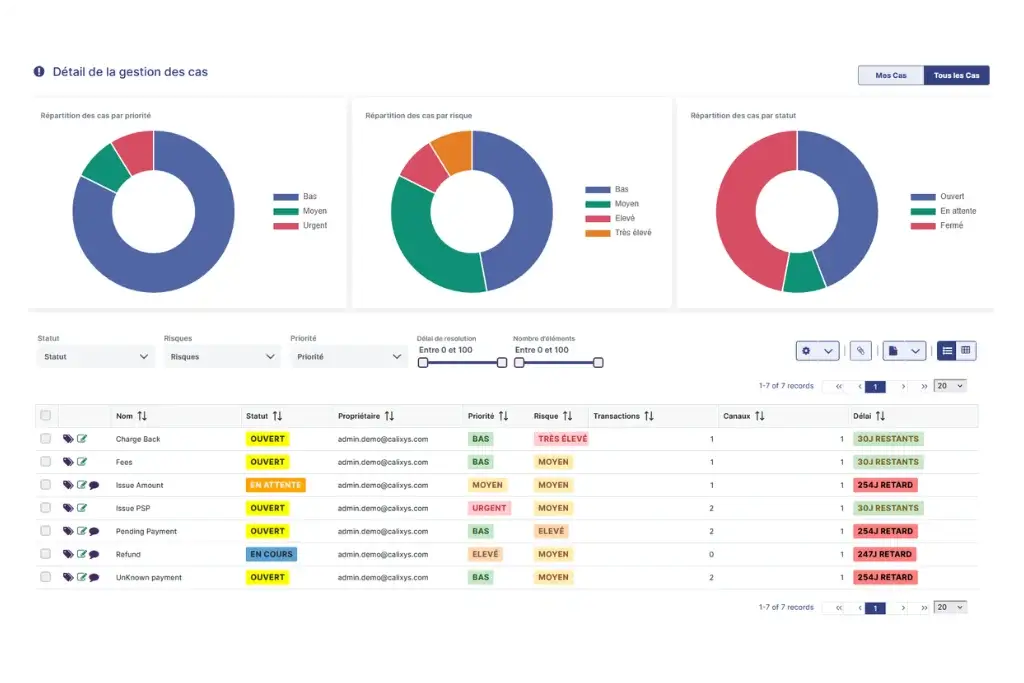CFOs facing the stress of regulation

Publié
Le 08/03/2024, par :
- Anne Marie Diom
Sections
Contexte
According to the CFO’s job description, part of their role is to ensure compliance with accounting and financial regulations, as well as with the company’s legal obligations. But what does this mean on a day-to-day basis? What is at stake in this “compliance” role? In this article, we’ll look at the stress CFOs face in meeting their legal compliance obligations and at the solutions they can put in place.
What stresses CFOs?
According to a EY study, 65% of CFOs say they are unable to focus on strategic priorities because of the time spent on legal compliance, control and costs.
As in many professions, CFOs can be under stress. The particularity here is the proportion of stress linked to legal obligations. In fact, CFOs coordinate several financial departments: the various accounting departments (banking, suppliers, sales & billing, etc.), budgeting and planning departments, investment departments and sometimes even HR departments (payroll). They are responsible not only for the smooth running of these different departments, but also for analyzing and communicating the company’s business performance to their colleagues, management or their Board. Last but not least, they are often consulted on strategic company decisions, thanks to their ability to draw up short, medium and long-term financial projections. Their role is therefore decisive in steering corporate strategy, but the weight and responsibility of legal obligations and regulations weigh heavily on their shoulders. Let’s see some of the main stress factors in the following parts.
Year-end closing period
The year-end closing of accounts is undoubtedly a source of stress for CFOs. It is crucial, in fact, because it provides an overview of a company’s finances. Aside from these important stakes, accounting and financial closing is often a long and tedious process. Invoices and purchase orders must be found, discrepancies detected and explained or cleared. Above all, you need to know where to find the information, who to ask for it and how to access it. Although it is often not the CFO who directly manages this task, he or she is responsible for setting up the process for the team, and for ensuring that it runs smoothly.
Statutory auditor
As defined by the French Ministry of Justice, the statutory auditor or CAC “verifies the fairness and regularity of a company’s financial statements. (…) He ensures that the assets and the financial situation of the entity are in conformity with reality”. In the United States the corresponding position can also be held by an external CPA or financial controller.
The statutory auditor is therefore the guarantor of a company’s financial compliance, and one of the CFO’s main missions is to ensure this, so the statutory auditor’s verification acts as a “final test” for him.
Evolving financial standards and regulations
In addition to the closing of accounts and external auditors, there are other factors that make the day-to-day life of CFOs even more stressful. Since they are also the ones responsible for ensuring compliance with financial regulations, they are the first to have to adapt to them.
MiFID II, a European standard designed to bring transparency to financial markets, Dodd Frank, on bank supervision, and CASS 7, on the unification of payment systems in Europe, are some examples of the adaptations CFOs have had to face.
And that’s not counting regulations specific to certain business sectors or geographical areas. As a result, CFOs need to keep up to date with legislative developments that have a direct impact on the way they work or the requirements they must meet. To do this, they refer to the articles published by the relevant institutions, such as AMF, the FCA, the ACPR, etc.
There’s no denying that this demands a great deal of vigilance on their part, is an additional source of concern, and forces the adaptability of the different financial services.
Obstacles and challenges for CFOs facing regulations
The various constraints mentioned earlier are an integral part of CFOs’ daily lives and represent challenges with high stakes.
Meeting deadlines
As is the case with many regulations, financial regulations also include the notion of deadlines to be met. So, in addition to the constraint of compliance, there is also that of time, and this accumulation of constraints ends up being a source of stress. What’s more, these deadlines impose a certain regularity on departments, and a great need for prioritization and analysis tools.
Reputation & trust
The image a company conveys to all its stakeholders is extremely important. This is another of the challenges of financial compliance: guaranteeing a company’s image, reputation, transparency and credibility. Carrying out financial controls to comply with the law creates trust with partners, suppliers, investors and shareholders, as well as with consumers.
Gathering and validating data
Finally, among the many other difficulties that finance directors can encounter, we’d like to mention data collection. Simple on the surface, it can become a real headache when it comes to collecting data scattered over time and between different departments. Without an effective centralization system and a clear reporting process, this task alone can also become stressful.
In another EY study conducted in 2010, 57% of group CFOs consider advanced data collection and analysis to be a “key skill for tomorrow’s Finance function”.
How can CFOs reduce their stress ?
Centralize your data
In view of all the possible problems we’ve just listed, the first thing to do is to centralize your data. Indeed, data centralization alone facilitates several other compliance processes. This saves the finance departments precious time. Having reliable data that’s easy to access, and knowing directly where to look for it, all adds up to greater productivity, lower costs and better compliance with deadlines.
Having all your financial data in one place avoids errors and wasted time, it also facilitates all your legal obligations. It’s the first key to reducing stress!
Of course, it’s not enough to know how to collect them, to be totally reassured, you also need to look for the accuracy of these data, since they are the basis of all analysis work and legal documents.
It is therefore more practical to choose software or a solution that not only centralizes but also verifies and validates your financial data.
Make your data more reliable:
It’s not enough to be able to find them easily, you also need to be sure that they are reliable. Then you need to put in place a clear, efficient flow verification process tailored to your business.
Calixys’ XREC solution enables you to define different roles, visibility and access rights for each user, so that you can collaborate between departments and have a flexible, reliable process.



